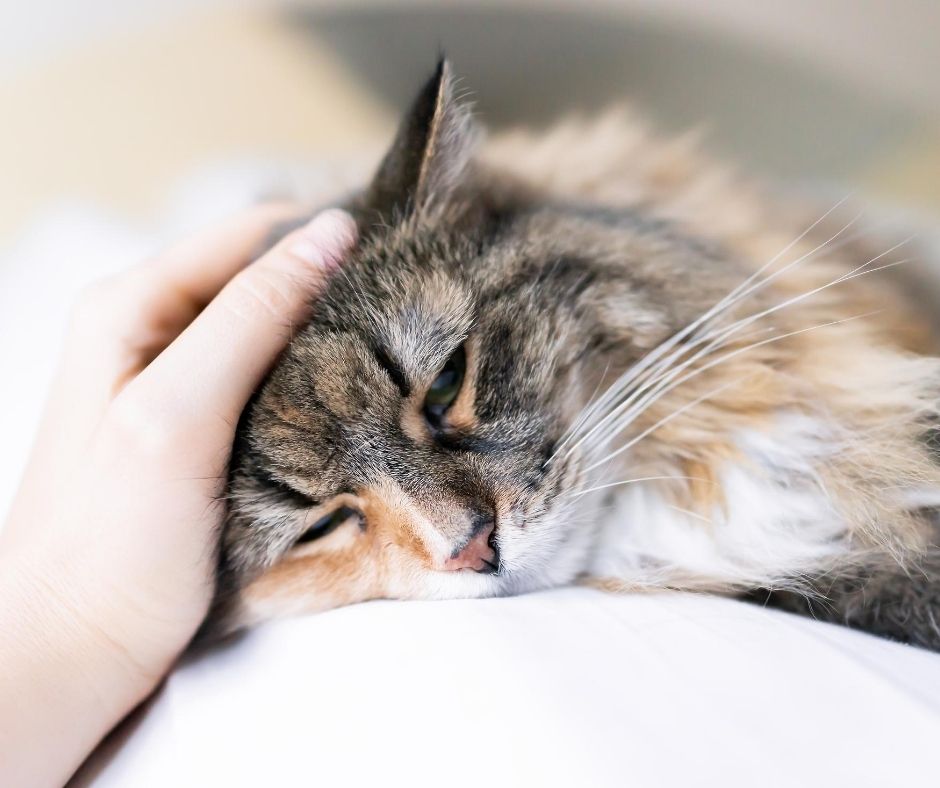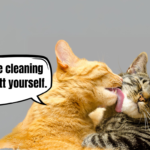Your cat is acting differently than usual and you have no idea why? Instead of looking for answers in the depths of the internet, it’s better to ask cat’s behaviorist. See what can do for you (an your cat!) an expert of cat’s behavior.
Who’s a cat behaviorist?
Studying furry’s behavior isn’t easy, and a wrong diagnosis can lead to serious health consequences for your pet. Therefore, the analysis of cat behavior requires special profession, and the behaviorist is often also referred to as “cat psychologist”. Although such a profession doesn’t officially exist yet (f.e. in Poland), practicing cat behaviorists are often zoopsychologists (although it’s not entirely identical). It should be noted that when choosing the services of an expert on cat behavior, it’s better to carefully look at his qualifications, completed courses and certificates. For the sake of your pet, carefully examine the behaviorist’s experience, ask for references (or ask for the opinion of friends or a veterinarian), verify whether the specialist owns a cat himself (this increases trust at the beginning) and what the issue of practice looks like (whether he deals with studying feline behavior after hours whether, for example, he works in a veterinary clinic or a shelter on a daily basis). Do good research and stay away from all pseudo-specialists – after all, this is about your cat’s health!
When you should visit cat behaviorist
The spectrum of disturbing cat’s behaviors is quite wide. One of the more frequent reasons for visiting a specialist is doing the physiological needs outside the litter box, fear of people and other animals, and cat aggression (towards people and other animals, e.g. new cats at home). Often, boredom is the reason a polite cat turning into a deadly messing machine. A visit of a cat behaviorist can make us realize many things that until now seemed normal to us or not related to the unusual behavior of our pet. A look from the outside, a few valuable insights and a detailed interview help with make a quick diagnosis and return things back on track.
Before you call a cat behaviorist, read this:
How to prepare for a cat behaviorist’s visit
When you decide to visit a cat psychologist, remember that the meeting takes place in the natural environment of the cat (if the pet is not going out, then your home will be the best place). A face-to-face meeting will do much more than an ‘online visit’ and will make it easier to make an accurate diagnosis. When inviting a behaviorist to your home, get ready for a lengthy interview and many questions, even those, what seems unrelated to the problem. The specialist will want to look at the cat, see the places where the animal most willingly spends its time and those that it avoids.
First cat and next cats in family
Help of a cat behaviorist will be extremely valuable when you decide to your first cat, but you haven’t had previous experience as a caretaker. The specialist will advise you how to carry out the process of socialization of your little fur, proposing a number of activities that will make life with a pet under one roof easier and help you both to communicate. Help will also come in handy when you already have a cat and you have made a brave decision to “enlarged your cat’s family”. This process isn’t always easy(we were under stress ourselves and we were afraid of Figo’s reaction when Kitku Yoda first appeared under our roof, and then Teddy). Cats are very territorial animals, and they can treat the new four-legged family member as a potential threat. Same situation may also repeat, when we plan to enlarge the “human family”.
Why did you do that, cat?
The role of the behaviorist is also to educate the cat caretakers (at every stage of the pet’s life), as well as to debunk cat myths, such as the malignancy of furries. Yes, cats throw items off the shelves and yes, sometimes they sometimes pee on a new couch. Such behavior is also a case for a cat psychologist. If you observe this type of cat’s problem (such as with the toilet), it doesn’t mean that the pet wants to do spite. Usually it’s the first sign of health problems or, for example, information that it’s time to check the condition of the litter box. Each behaviorist has basic knowledge in the field of veterinary medicine, so he will help to accurately diagnose the causes of the cat’s behavior at the first stage, recommending a visit to the veterinarian if it’s necessary.
Fear has big eyes
A fearful cat is a big problem, but also a challenge for the behaviorist. If your cat is new to the family, it’s difficult for him to adapt to new living conditions and you see him under the bed more often than at the window watching swallows, and it’s been a long time since the first day of the furry at home – consider contacting a cat behaviorist, who will help identify the problem and will have some valuable advice on how to encourage your pet to interact more. It’s also worth considering a consultation when a furry, well-versed in the topography of the apartment and a brave furry by nature, suddenly begins to hide at the sound of the slightest click – it’s better to find out what an expert has to say about.
How was in your case, fabCats? Socialization went smoothly or help of a cat behaviorist was necessary? Let us know!




